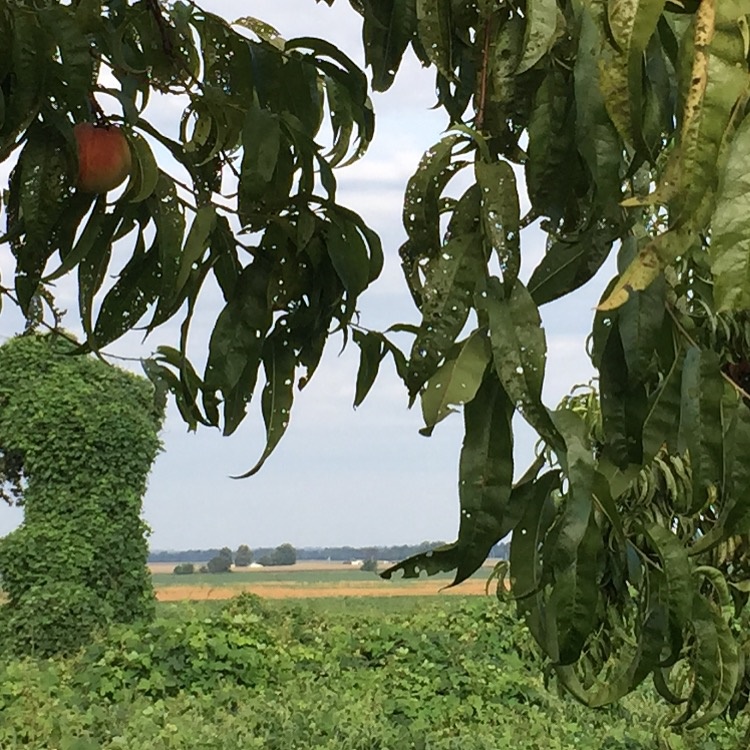As Bayer’s legal woes over glyphosate herbicide have worsened, they now face legal problems with their dicamba herbicide. In February, a jury in a U.S. District Court in Cape Girardeau, Missouri issued a verdict finding Bayer and BASF liable for plaintiff Bader Farms’ 30,000-plus damaged peach trees due to drift damage caused by dicamba herbicide. Bader Farms was awarded $15 million in compensatory damages and $250 million in punitive damages.
Monsanto “conspired to create and encourage an ecological disaster”
Bader Farms had alleged that it is going out of business because of damage incurred by the companies’ dicamba herbicides moving off of neighboring fields and harming their 1,000 acres of peach orchards. The lawsuit, originally filed in November 2016, also alleged that Monsanto, which was acquired by Bayer in 2018, and BASF created the circumstances that have damaged millions of acres of crops.
“Through their partnership, joint ventures, shared technologies, and mutual greed, Defendants have conspired to create and encourage an ecological disaster in Missouri and other states to increase the profits and demand for their dicamba products,” the lawsuit states.
During the trial, lawyers for Bader Farms presented more than 180 Monsanto internal company documents to the jury. Those documents included projections that thousands of farmers would complain about the dicamba system and internal emails that showed Monsanto denied academics the ability to test their products. The documents also included strategies from both BASF and Monsanto that said farmers would buy dicamba-resistant seeds in order to protect themselves—a strategy that one farmer described as “tantamount to extortion.”
3.6 million acres damaged in 2017
Monsanto introduced dicamba-resistant genetically modified cotton and soybeans because weeds have increasingly become resistant to glyphosate herbicide. However, dicamba is known to volatize or turn from a liquid to a gas and drift to neighboring fields and damage crops.
Monsanto introduced the GM cotton seeds in 2015 and GM soybean seeds in 2016. But, Monsanto and BASF didn’t introduce their dicamba formulations until 2017. Meanwhile, farmers allegedly and illegally sprayed older formulations of dicamba in 2016 and damaged Bader Farms’ peach trees—along with other farms.
The drift damage continued in 2017 even with new dicamba formulations from Monsanto and BASF that were claimed to be less volatile. An estimated 3.6 million acres were damaged, according to a study by Kevin Bradley, a professor at the University of Missouri.
Jury found Monsanto negligent
The jury in the Bader trial found that Monsanto was negligent in releasing the dicamba-tolerant GM seeds without the herbicide. The jury also found Monsanto and BASF were negligent in releasing new versions of dicamba that were touted to be less likely to drift but still damaged Bader Farms’ peach trees.
Bev Randles, an attorney for Bader Farms, said the ruling sends “a strong message.” “The Baders were doing this, not just because of themselves or for themselves, but they felt like it was necessary because of what it means to farmers everywhere. This was just wrong.”
Bayer said in a statement that it will appeal the decision.
Linda Wells, Pesticide Action Network organizing director, praised the ruling: “This verdict is just the tip of the iceberg—there is a long queue of farmers who have been impacted by dicamba drift and deserve their day in court. Bader Farms’ victory in this case signals a turning tide, and opens opportunities for farmers to hold Bayer and BASF legally accountable for the dicamba drift crisis more broadly.”
Since the ruling, interest among farmers to seek retribution for dicamba damaged crops has increased. According to the law firm Peiffer Wolf Carr & Kane, the number of farmers filing lawsuits against Monsanto/Bayer and BASF could reach 2,000.
One such farmer is Marty Harper of Greenville, North Carolina who grows peanuts, cotton, corn, soybeans, wheat, sweet potatoes and tobacco on 4,000 acres. Harper estimates that dicamba drift caused more than $200,000 in damage to his tobacco fields.
The U.S. Department of Agriculture’s Fruit and Vegetable Industry Advisory Committee has also recommended the suspension of dicamba registration to prevent produce crop harm resulting from off-target movement from the herbicide.
The dicamba lawsuits compound Bayer’s legal woes. The company has already lost three multi-million dollar lawsuits over glyphosate’s link to cancer. Bayer faces tens of thousands of similar lawsuits, and the company is now negotiating a settlement with plaintiffs that could cost the company an estimated $12 billion.
Sources: Civil Eats, Feedstuffs, Morning Ag Clips
To view source articles, visit:
https://www.feedstuffs.com/news/thousands-farmers-expected-join-dicamba-lawsuits
https://www.morningagclips.com/usda-advisory-committee-recommends-suspension-of-dicamba-use/









